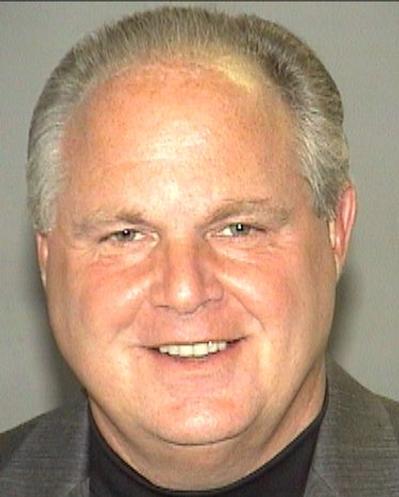- Humans reflexively identify themselves as members of groups.
- Any collection of individuals can be the basis of an identity group, no matter how arbitrary or trivial the basis of membership in the group. This is known as The Minimal Group Paradigm.
- For every group with which an individual identifies, there is also an implied "out-group", of individuals who are not seen as members.
- Members of the group are always "preferred" to non-members by the individual. They are seen more positively than non-members in any given dimension. This is known as In-Group Bias.
- We all have multiple groups with which we identify. But generally, only one of these identities is salient at a time. The salient identity is determined by the social context we're in at any given moment.
And now, for something completely different...
The practice of democracy has as its ethical basis Utilitarianism. Democracy's advocates claim that it is the political arrangement that results in the greatest "good" for the greatest number of people. The assertion groans under the weight of all its unspoken assumptions but we will treat it as true for now. And in fact, I believe it to be true.
Democracy is supposed to let everyone protect and promote their personal interests. Everybody gets to say what they want the group to do. The group then does what most of its members wanted. And there you have it, the greatest good for the greatest number of members.
Now, about those assumptions...
let's start with "personal interests". What is in your interest? Shall I sit and tell you what YOUR interests are? How do I know? Wouldn't it be a bit authoritarian for me to tell you what those interests are? What if I get it wrong?
Roger Zelazny said it well. "When people start doing things for my own good, I reach for my gun." (Also, he had a black belt in judo.)
(Image from Wikipedia)
In a Democracy, people get to make their own call about what their interests are. They get to decide what public policies are going to advance those interests. People perceive those interests on the basis of the salient identity. People define their interests on the basis of the group with which they identify at the moment.
Another assumption...
democracy assumes rationality. It assumes that individuals are capable of discerning what their interests are. But humans AREN'T rational. We take cognitive shortcuts. We don't sit down and make a list of every public policy alternative, and calculate it's cost-benefit profile to us in the short, medium and long term. Unless we're professional actuaries.
Instead, we look to elites from the salient group to tell us what our interests are, and which public policies will advance them. There's more to it than that; in-group bias guarantees that you will think fellow members of the salient group are nicer, more honest people than non-members.
(Images from wikimedia commons)
This has profound (and somewhat subversive) implications for Democratic Theory, particularly Pluralism. Much more importantly, it has profound implications for the PRACTICE of democracy, in the United States, in 2012.
Elections are not won on the basis of good policy. They're not won on the basis of past policy performance or anticipated policy innovations. Elections, God help us, are not decided on the basis of policy outcomes.
That last point deserves some elaboration. It is more accurate to say that elections are not TYPICALLY decided on the basis of policy outcomes. The actual outcome of most public policies is usually obscure. It changes from year to year. And remember, people's identity is contextual; their own perception of their self-interest fluctuates with whatever identity they're wearing at the moment. Their belief about the effect of a public policy is equally unstable. (Incidentally, this is the basis of public opinion volatility)
The outcome/effectiveness/desirability of a particular public policy is usually defined by salient group elites. If we're discussing gun policy, a salient identity group is "gun-owners" and a salient group elite is the NRA. Which is why gun-fetishists think concealed-carry is a better public policy response to mass shootings than gun control.
(image from Wikipedia)
There are numerous bases for an identity group. Gender, race, religion, nationality, ethnicity, region, sports fandom, sexual preference, fashion, musical preference... any noun that can be applied to a person is a potential basis for identity, thanks to the Minimal Group Paradigm. In the context of a presidential election, typically salient identities are partisan and ideological.
Consequently, elections ARE won on the basis of identity politics. Most voters don't know what happened. Most voters have no idea what might happen if either party, or any particular candidate gets their way. What voters do know is which side they're on. Because their side is right, and good and serves the national interest, and the other side is wrong, and evil, and is only interested in gaining power for its own selfish ends.
And all of this is made manifest in the tactical decisions of both campaigns in the 2012 presidential election.
Partisanship is an increasingly salient identity for many voters. It's important for candidates to stoke that identity in those who hold it. This is why the in-boxes of so many of us are stuffed full right now, packed with dire warnings about the nefarious designs of the other party. (In the interests of full disclosure, let me acknowledge that I believe with all my heart that the Republicans harbor nefarious designs).
(image from wildsoundmovies.com)
But there aren't enough partisans out there to get you to 51% of the electorate. You can expand your coalition a little bit more by activating ideological identity; there's lots of overlap with partisanship, but they're not congruent. But that still doesn't get you to 51%.
Religious identity is another marginal expansion of your vote count, at least in 2012. Appealing to the religious identity of conservative Christians has realigned American politics from '78 to the present day. But that very success has created sufficient overlap with political and ideological identity to have reached a point of diminishing returns. There just aren't that many extra votes to be had there, particularly for a Mormon candidate.
And remember, for every in-group, there's an out-group. The incestuous little three-way between the GOP, Conservatives and the Religious Right has begun to make Women uncomfortable as their reproductive rights, legal protections and maternity benefits have all come under attack.
Hispanics are looking at the blatant appeals to ethnic identity disguised as conservative immigration policy and becoming Democratic voters. Homosexuals have had their sexual identity made salient to their politics around the issue of gay marriage.
There are fewer and fewer identities to be activated by the Republicans. This is indicative of a party in decline; the Republican Party just doesn't LOOK like America in the early 21st century.
But, at least this year, there remains an identity which can be activated which might wring enough votes out to push them across that magical 51% threshold.
I'm talking about race, obviously.
And so we've seen the Romney campaign activate the race issue with a shamelessness that has taken the tame Beltway media by surprise. Willard Romney has intentionally trolled the NAACP, hoping for (and getting) footage of himself being booed. He has deliberately and with calculation made a Birther joke. He has refused to acknowledge the complete falsity of his claims regarding the welfare to work requirement, despite having been universally condemned even by the tame Beltway press.
If Romney can get you to think of yourself as "white", instead of as "middle-class", he knows that in-group bias will take over and you'll assume his sincerity and good intentions, while simultaneously becoming more suspicious of Barack Obama.
It is a despicable ploy, and manipulative, and one which undermines the public policy debate which would be at the center of a RATIONAL political process.
And, it might work.
There are fewer and fewer identities to be activated by the Republicans. This is indicative of a party in decline; the Republican Party just doesn't LOOK like America in the early 21st century.
But, at least this year, there remains an identity which can be activated which might wring enough votes out to push them across that magical 51% threshold.
I'm talking about race, obviously.
And so we've seen the Romney campaign activate the race issue with a shamelessness that has taken the tame Beltway media by surprise. Willard Romney has intentionally trolled the NAACP, hoping for (and getting) footage of himself being booed. He has deliberately and with calculation made a Birther joke. He has refused to acknowledge the complete falsity of his claims regarding the welfare to work requirement, despite having been universally condemned even by the tame Beltway press.
If Romney can get you to think of yourself as "white", instead of as "middle-class", he knows that in-group bias will take over and you'll assume his sincerity and good intentions, while simultaneously becoming more suspicious of Barack Obama.
It is a despicable ploy, and manipulative, and one which undermines the public policy debate which would be at the center of a RATIONAL political process.
And, it might work.








Best content & valuable as well. Thanks for sharing this content.
ReplyDeleteApproved Auditor in DAFZA
Approved Auditor in RAKEZ
Approved Auditor in JAFZA
i heard about this blog & get actually whatever i was finding. Nice post love to read this blog
Approved Auditor in DMCC